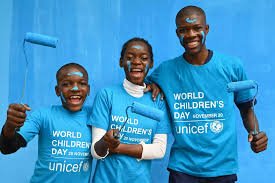The United Nations Children’s Fund (UNICEF) has revealed that 67.5 per cent of children in Nigeria, aged 0 to 17 years, face multiple forms of poverty, a dire situation that affects millions across the country.
UNICEF’s Deputy Representative, Rownak Khan, presented these findings on Wednesday in Abuja, highlighting the alarming extent of child poverty in Nigeria.
According to Khan, 51 percent of all individuals living in multidimensional poverty in the country are children, indicating that nearly one in two children in Nigeria are affected by poverty in its various forms.
“Stark variation can be seen by region and location,” Khan noted. “While more than 50 percent of all children live in multidimensional poverty in each state, the situation is even more severe in states like Bayelsa, Sokoto, Gombe, and Kebbi, where the figure rises to over 95 percent. In rural areas, nearly 90 percent of children experience multidimensional poverty.”
She also reiterated the urgent need for humanitarian intervention, revealing that 4.9 million children in Nigeria are in desperate need of assistance.
Khan further called for a 2% increase in investment in social protection for children to help combat these challenges.
She also raised concerns over the insufficient healthcare available to children in Nigeria, pointing to the nation’s doctor-to-patient ratio. “There are only two doctors for every ten thousand children in Nigeria,” she said, stressing the need for more skilled healthcare workers to address this gap.
In his message, the UN Secretary-General, António Guterres highlighted the global urgency of improving conditions for children, especially in conflict zones and poverty-stricken areas. “It is shocking that, in the 21st century, any child still goes hungry or uneducated,” Guterres stated. “Children’s lives are caught in the grinding wheels of poverty.”
UN Humanitarian Coordinator, Mohamed Fall echoed this sentiment, calling for a global commitment to child rights and welfare. “Today, millions of Nigerian children still lack access to quality education, healthcare, and basic nutrition,” Fall said. “We must increase our investment in education to ensure every child has a chance to thrive.”
World Children’s Day is observed annually on November 20, with this year’s theme: “Listen to the Future.”



